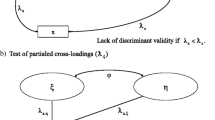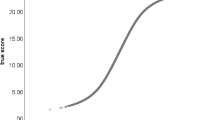Abstract
One of the most common objections against utilitarianism is that it cannot account for the claims of distributive justice. This objection can be answered by appeal to the principle of Diminishing Marginal Utility (DMU), which says that the value of a given portion of a commodity tends to increase as a person's supply of the commodity decreases. DMU implies that, other things equal, the way to maximize the value of a commodity is to distribute it equally. Some economists have objected to DMU on the ground that it presupposes interpersonal comparisons of utility, but the arguments which they have advanced against the objectivity of such comparisons are unsound. Moreover, the interpersonal comparisons presupposed by DMU are ordinal, rather than cardinal, and there are reasons for believing that ordinal comparisons, at least, do have an objective basis.
Similar content being viewed by others
Author information
Authors and Affiliations
Rights and permissions
About this article
Cite this article
Becker, E.F. Justice, utility, and interpersonal comparisons. Theor Decis 6, 471–484 (1975). https://doi.org/10.1007/BF00139427
Issue Date:
DOI: https://doi.org/10.1007/BF00139427




